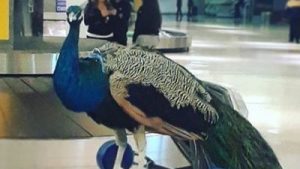
Yes, you read this correctly. A passenger on a United Airlines flight attempted to bring her emotional support peacock on board with her. Ultimately, she was not permitted to fly with the peacock because United found that the peacock could pose a safety hazard to the passengers and flight based on its weight and/or size.
In the community association arena, the Fair Housing Act typically comes into play in a community that does not allow dogs or other pets. In order to request an accommodation to keep the animal, the owner must first obtain and provide to the association written documentation from a medical doctor/professional confirming that the owner has a disability (as defined by the Fair Housing Act) and that the animal is necessary to assist the owner with his/her disability. Certain emotional support animals are not allowed such as snakes, reptiles, ferrets, rodents and spiders. Also, an animal can be denied if it:
(a) Poses a direct threat to the health or safety of others;
(b) Results in substantial physical damage to the property of others, unless the threat can be eliminated or significantly reduced by a reasonable accommodation;
(c) Poses an undue financial and administrative burden; or
(d) Fundamentally alters the nature of the provider’s operations
Whether a proposed support animal falls within one of the above classifications is very fact specific, so I suggest that an association consult with its attorney before issuing a denial to an owner.
